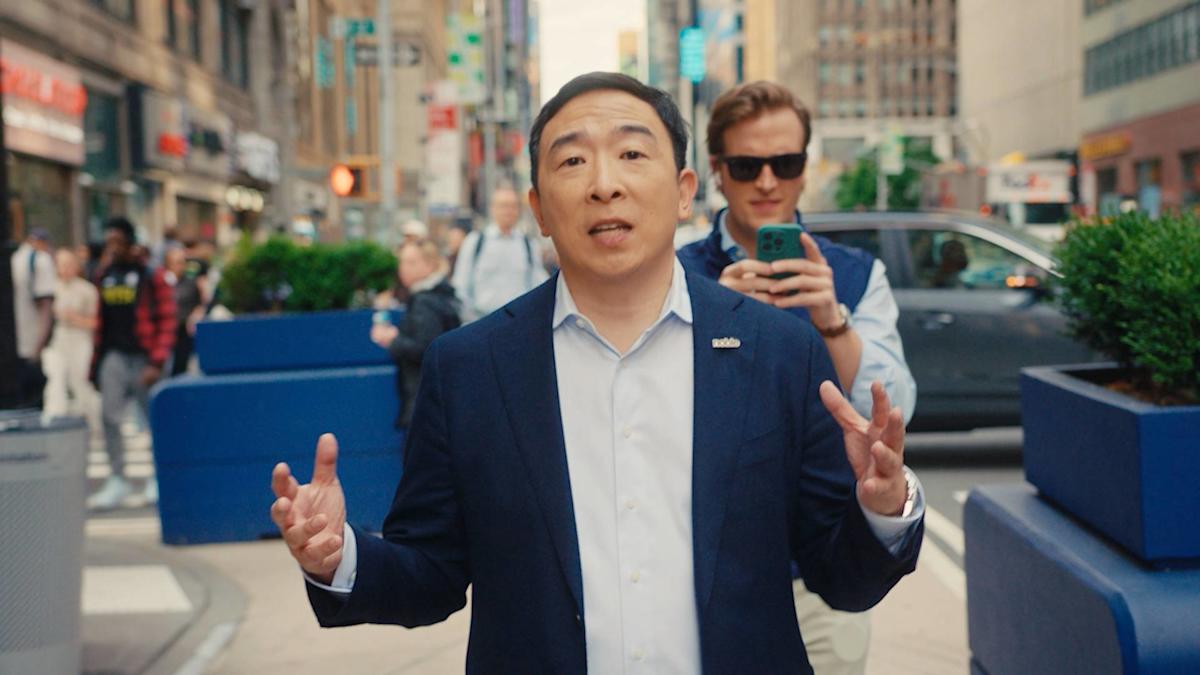Andrew Yang took inspiration from Mark Cuban for his budget cell carrier Noble Mobile
Former U.S. presidential candidate and entrepreneur Andrew Yang is starting a new mobile virtual network operator — a company that resells wireless service using another carrier’s network infrastructure — that will give you money back on your bill if you use less data.
“I’m as guilty of doomscrolling as the next person, but knowing that doomscrolling is actually costing me money makes me feel dumb,” Yang told TechCrunch. “Now my wallet and financial incentives are tied to what I want to do, which is to look up more and use my phone a little bit less.”
Using T-Mobile’s network, Noble Mobile offers a $50 monthly cell phone plan with unlimited talk, text, and 5G data. If you use less than 20 GB of data in a given month, you get money back in the form of “Noble Cash.” Like credit card points, these can be redeemed for rewards, or they can be cashed out for about one dollar for each GB you don’t use below the 20 GB threshold.
The amount of data one uses depends on their access to Wi-Fi – you don’t use up your cellular data if you’re downloading videos on your home Wi-Fi network – as well as their general habits around phone usage. (For context, as a screen-addicted millennial who constantly streams podcasts, audiobooks, and YouTube videos on the go, I’m averaging around 13 GB per month, which means that I would get around $7 back from a $50 payment if I cashed out.)
Noble Mobile raised a $10.3 million seed round led by Corazon Capital with participation from marketing professor Scott Galloway and other venture firms.
According to Yang, the average American spends $83 per month on mobile service, which makes Noble Mobile seem suspiciously appealing (though sometimes, traditional carrier bills may appear higher because a customer is paying for their new iPhone in monthly installment payments).
MVNOs like Noble Mobile or Ryan Reynolds’ Mint Mobile, which T-Mobile acquired for $1.35 billion last year, can keep costs lower than traditional carriers because they buy wholesale access to a wireless network rather than building and operating their own infrastructure.
“The business model of Verizon or AT&T in particular has gone from investing in infrastructure and network quality to keeping us frozen in place and hoping that we Americans don’t notice that we’re spending twice as much per capita on our wireless data as, for example, Europeans and Australians,” Yang said.
To put this in perspective, Verizon paid $11.2 billion in cash dividends to investors last year.
Knowing that MVNOs could provide cheaper service, Yang looked to Mark Cuban’s Cost Plus Drugs for inspiration.



Leave a Comment
Your email address will not be published. Required fields are marked *